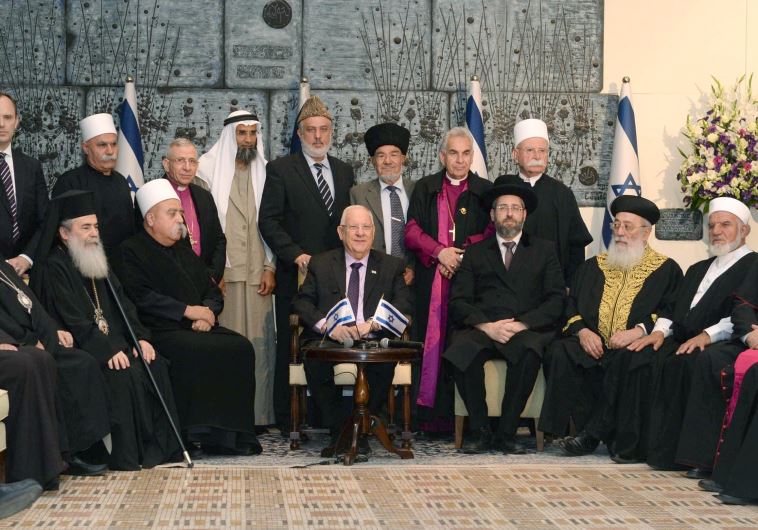'All those who love Jerusalem must do utmost to prevent religious war in holy city'
Religious leaders of different faiths join Rivlin in condemning violence, terror and incitement.
 President Reuven Rivlin hosts religious leaders at his residence(photo credit: Mark Neiman/GPO)Updated:
President Reuven Rivlin hosts religious leaders at his residence(photo credit: Mark Neiman/GPO)Updated: